LATEST INSIGHTS
Your Present Location: LATEST INSIGHTS-
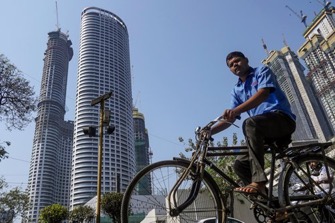
India to reconsider Belt and Road
The huge dividends India enjoys from the Asian Infrastructure Investment Bank (AIIB) will eventually push the South Asian country to embrace the China-proposed Belt and Road (B&R) initiative, experts predicted on Tuesday.
2018-06-28 -
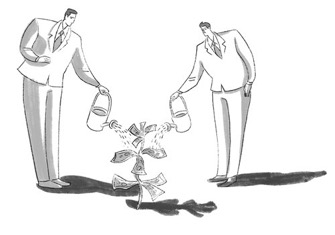
Ding Gang: China, Japan can come closer in business
On Tuesday, some Chinese and Japanese scholars along with former officials organized an event in Shanghai to commemorate the 40th anniversary of the signing of the Sino-Japanese Peace and Friendship Treaty. The scale of the activities is rare in recent years, reflecting a thaw in China-Japan relations.
2018-06-28 -
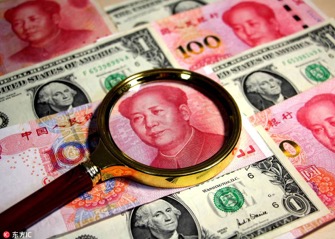
Big fluctuations of yuan unlikely
The exchange rate of the yuan weakened to a five-month low against the US dollar on Friday, but analysts said they did not expect Chinese authorities to use depreciation of the Chinese currency as a way to help it gain amid trade tensions with the United States.
2018-06-28 -
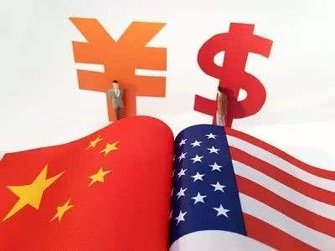
Zhao Minghao: Unfair for US to thwart China’s industrial progress
US President Donald Trump`s first round of tariffs on $34 billion of Chinese goods will take effect from July 6 and Beijing has vowed retaliatory measures. A trade war between the two largest economies in the world may break out at any moment.
2018-06-26 -
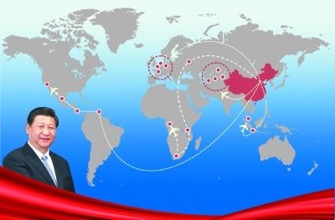
Xi thought enshrined as supreme guidance to China`s diplomacy
China has enshrined Xi Jinping`s thought on diplomacy as the supreme guidance to the country`s foreign affairs at a key conference, which also urged the country to take an active part in leading the reform of the global governance system.
2018-06-25 -

Guan Zhaoyu & Yang Yuanhang: China, India should jointly resist US tariffs
After the US government recently decided to impose a 25-percent tariff on $50 billion worth of Chinese imports, China immediately announced additional 25-percent duties on 659 US goods worth $50 billion.
2018-06-25 -
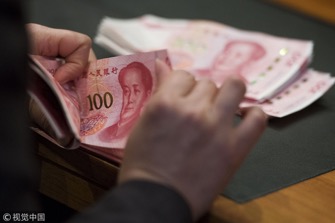
China`s new financial measures to help small businesses
China`s newly-unveiled financial measures to ease credit strain on small- and micro-sized businesses (SMBs) are necessary for their development, experts said.
2018-06-22 -

Jin Canrong: China’s external challenges within control
Big powers are generally stronger in dealing with the external strategic environment than smaller countries. But they are facing more suspicion and are less popular in their regions.
2018-06-21 -
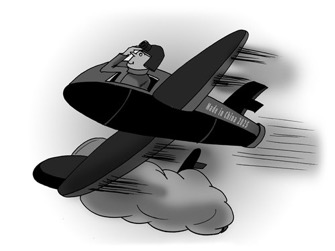
Wang Wen: China’s manufacturing needs to fight a protracted war
Starting at the end of last year, the difficulty of achieving the "Made in China 2025" initiative increased, with pressure from the US trade provocation and the domestic transformation and upgrading upgraded. To get to 2025, eight years lie ahead. In that time, China`s manufacturing sector faces a protracted war that`s similar to the Anti-Japanese War (1937-45) it fought.
2018-06-21 -
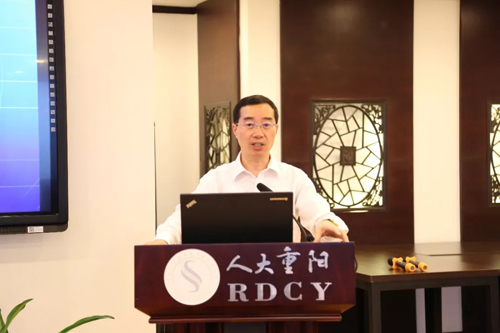
Song Lifang: How China breaks through anti-dumping
On the evening of June 12th, RDCY Seminar Series was held in Chongyang Institute for Financial Studies at Renmin University of China (RDCY). Professor Song Lifang, deputy dean of the “Belt and Road” Economic Research Institute at Renmin University of China (RUC) and professor of the School of Economics of RUC, delivered a speech themed with “foreign anti-dumping against China and China’s coping strategies”, focusing on the basic conditions, product industries, characteristics of this issue and C
2018-06-20 -
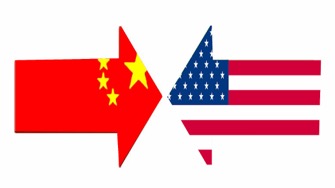
Trump just raised the stakes in the trade war; China would follow
After firing the first shot in the China-US trade war, Donald Trump has just raised the stakes. He threatens to impose tariffs on an additional 200 billion US dollars worth of Chinese goods if China “refuses to change its practices".
2018-06-20 -
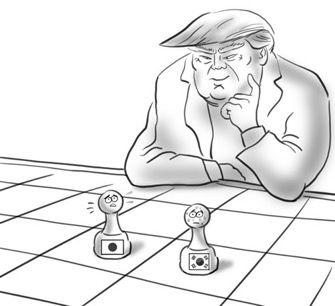
Wang Peng: US move to suspend military drills with South Korea a calculated move
US President Donald Trump announced on June 12 that he intended to end US military drills with South Korea, calling them "inappropriate" and "provocative." He also said he wants "at some point" to withdraw US troops currently stationed in South Korea. A public clamor resulted as this was seen to be another of Trump`s whimsical decisions. Criticized by US politicians, Trump`s shocking declaration left Seoul at a loss and made South Korean troops nervous.
2018-06-20 -
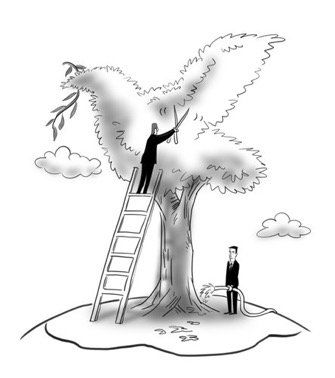
Zhao Minghao: Process of denuclearization remains a sticking point after Singapore summit
The summit between US President Donald Trump and North Korean leader Kim Jong-un in Singapore is an important breakthrough in the history of North Korea-US relations. It brings the nuclear issue closer to resolution. Although more likely to be a consensus, the goal of complete denuclearization of the Korean Peninsula was reaffirmed in the joint statement that the two countries signed. The Trump administration also pledged to halt the annual US-South Korea joint military drill, which fulfills the
2018-06-19 -

“Who are we?” – Brexit talks, one year on
Since the Brexit negotiations commenced on June 19, 2017, political tensions have given rise to economic uncertainty. Paris has eclipsed London as the most attractive European destination for foreign direct investment. The sentiment within the UK is dismal, as each household has seen its annual income shrink by 900 pounds.
2018-06-19 -
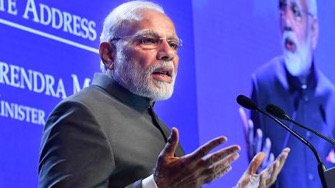
Liu Zongyi: Is New Delhi’s foreign policy biding time and hiding capacity?
In his keynote speech at the 17th Shangri-La Dialogue recently held in Singapore, Indian Prime Minister Narendra Modi emphasized "freedom of navigation" in the South China Sea and "peaceful settlement of disputes," also criticizing the initiatives that place other countries "under impossible debt burden," which were possibly insinuations against Beijing`s South China Sea policy and the Belt and Road initiative.
2018-06-15 -
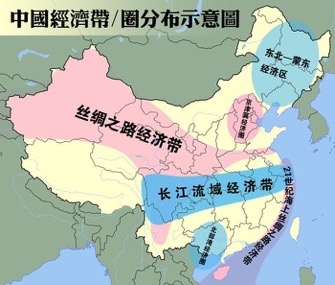
China`s Leading Role Strengthens Regional Economic Cooperation
Over the past four years, a batch of major joint projects have been completed in SCO member states under the framework of Belt and Road, including highways, railways, tunnels and electric power plants, which improve the cross-border logistics conditions and promotes the development of the SCO countries.
2018-06-14 -

Han Hua: Film connects and solidifies the “Belt & Road”
Shanghai TV & Film Festival (SIFF) has opened at the heels of a successful SCO Summit, where “Shanghai Spirit” is re-enhanced by Chinese President Xi Jinping and state leaders who attended the summit. Shanghai Spirit envisions mutual trust and mutual benefit, equality and consultation, respect for diversity of civilizations and pursuit of common development.
2018-06-14 -
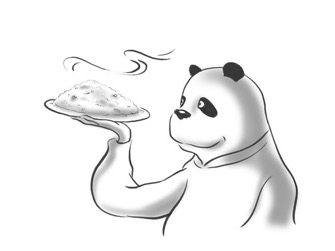
Ding Gang: Chinese food sends message in Kim-Trump meeting
When US President Donald Trump and North Korean leader Kim Jong-un sat together for a working lunch on Tuesday, they saw two Chinese dishes on the menu - Yangzhou fried rice and sweet and sour pork. I wonder how the Singaporean waiters described the food to the statesmen, but they must have used the term Yangzhou.
2018-06-14 -
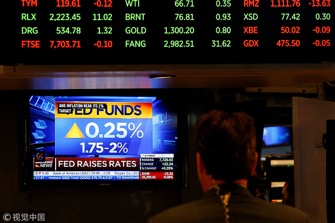
Fed hikes rates, emerging markets need to avoid sharp devaluation
The Federal Reserve raised its benchmark short-term interest rate a quarter of a percentage point on Wednesday and the emerging market countries need to be alerted about the upcoming impacts, experts predicted.
2018-06-14 -
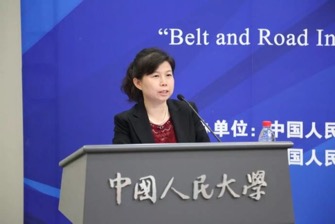
SCO contributes to the Economic Cooperation and Trade in Asia
Economic cooperation has become one of the major components of Shanghai Cooperation Organization system, with observers suggesting significant headway has been made in economic and trade cooperation among SCO countries in the 17 years since the group`s founding.
2018-06-13
























































































 京公网安备 11010802037854号
京公网安备 11010802037854号





